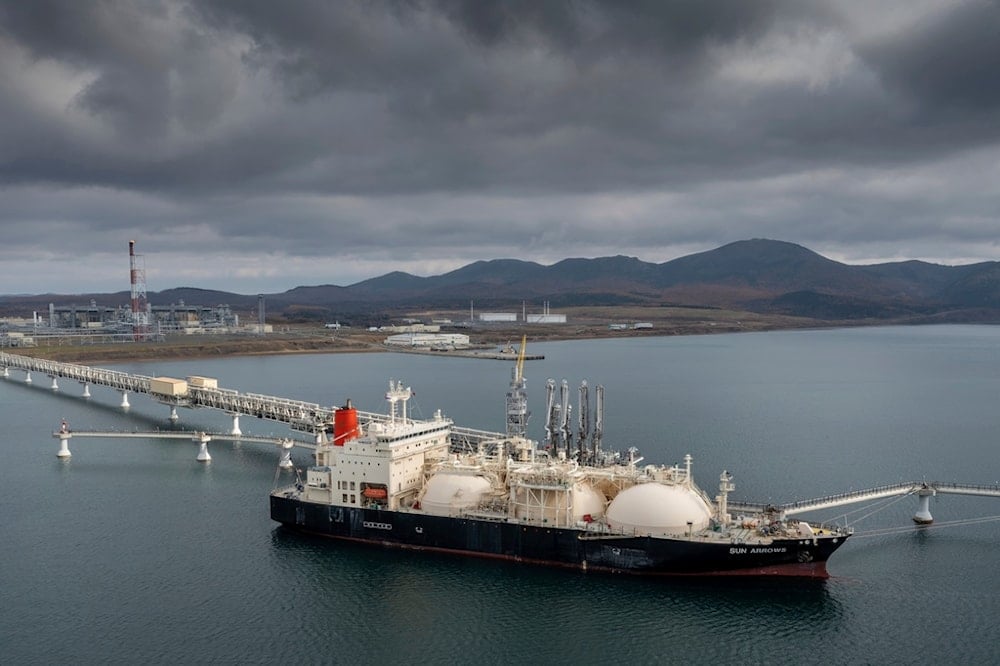France, Germany urge EU to sanction Russian oil giants in new package
France and Germany are urging the EU to target major Russian oil companies in its 19th sanctions package, though analysts warn enforcement gaps limit their impact.
-

The tanker Sun Arrows loads its cargo of liquefied natural gas from the Sakhalin-2 project in the port of Prigorodnoye, Russia, on Friday, Oct. 29, 2021 (AP)
Bloomberg on Tuesday reported that France and Germany have called on the European Union to add major Russian oil firms to the bloc's upcoming sanctions list, according to documents it reviewed.
"Additional steps should be considered, in particular listing oil majors such as Lukoil or Litasco, in order to put maximum pressure on Moscow's capacity to export its oil," the joint proposal from Paris and Berlin stated.
The measures are under discussion as part of the EU's 19th sanctions package, which also targets Russian banks and the country's energy trade. Both governments declined to comment when contacted by Bloomberg.
Approval from all 27 EU states is required for new sanctions to move forward. Past efforts to penalize Russia's energy industry have met resistance from several countries, including Hungary.
The draft package also looks to tighten restrictions on Russia's "shadow fleet" of vessels used to transport oil, as well as on intermediaries in third countries who facilitate the trade. EU officials are in Washington this week to coordinate potential joint steps with US counterparts.
Washington has also been weighing penalties against Moscow's covert tanker fleet and major energy firms, including Rosneft PJSC and Lukoil PJSC. Any US move, however, would require approval from President Donald Trump, who has so far avoided direct sanctions on Russia despite repeated deadlines and continued reluctance by President Vladimir Putin to engage in negotiations. Trump has instead raised tariffs on Indian imports to 50% in response to New Delhi's continued purchase of Russian crude.
Germany and France also urged Brussels to crack down on financial and logistical networks that allow Russia to evade restrictions. Some EU capitals want to expand measures to civilian firms that indirectly support Russia's defense sector.
Sanctions Pressure Plateau
Yet the push for tighter sanctions comes as the bloc continues to manage the fallout from earlier rounds. EU governments have committed more than €540 billion to shield households and businesses from surging energy bills, while euro-area inflation peaked at 10.6% in late 2022 before easing.
Russia's share of EU pipeline gas imports has fallen from nearly 50% in 2021 to around 12% in 2025, but the shift left Europe more reliant on costly LNG, with the United States now supplying over half of EU imports.
Energy-intensive industries, particularly in Germany, saw sharp contractions; gas-dependent sectors fell about 20% below pre-war levels at the height of the crisis.
Observers warn that unless enforcement improves, further sanctions may risk compounding Europe's own economic challenges while Russia continues to adapt.
The European Commission is expected to present the formal proposal in the coming days.
Read more: Russia plans new Balkan gas supply routes sidestepping Ukraine

 3 Min Read
3 Min Read









